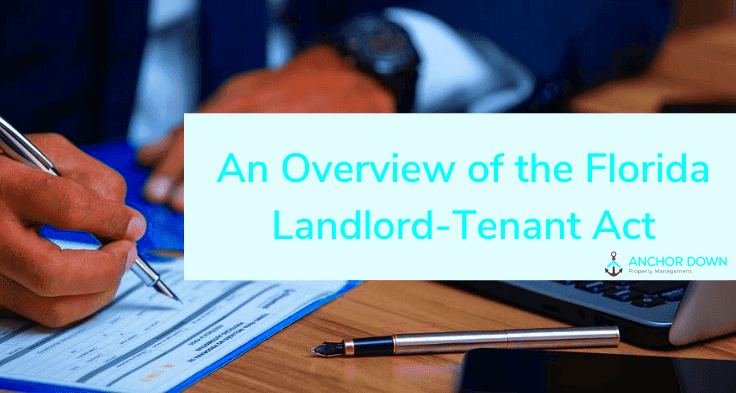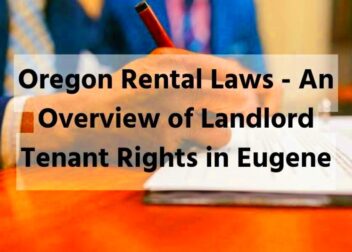Understanding Florida Landlord-Tenant Regulations
The regulations governing landlord-tenant relationships in Florida are vital in establishing a balanced rental ecosystem. They offer frameworks that safeguard both landlords and tenants, making their rights and obligations apparent. Being conversant with these regulations can help avoid conflicts and promote peaceful coexistence. If you are a landlord or tenant, understanding the laws will protect you from possible court issues.
Key Terms and Definitions in Landlord-Tenant Law
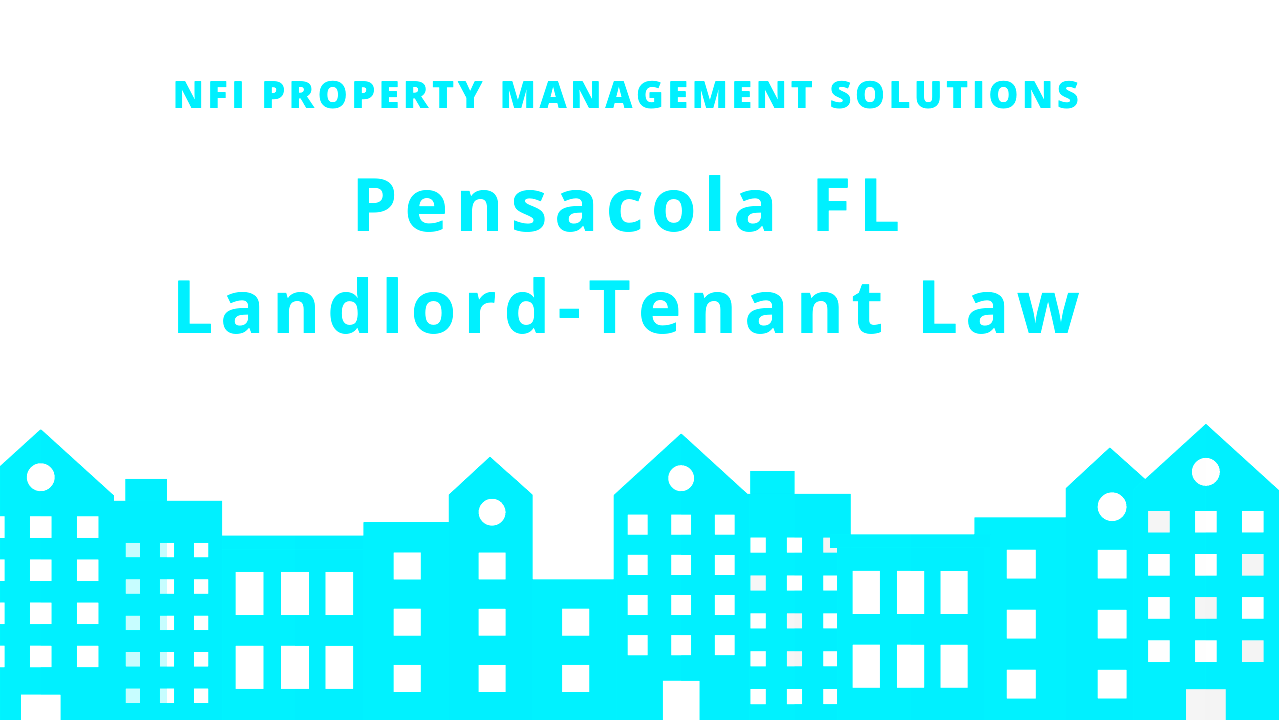
Some key terms in landlord-tenant law need to be clarified first, before getting into the details of the matter at hand. Knowing these terms will help you understand your duties and what you’re entitled to as a tenant or landlord.
- Lease: A legal agreement between a landlord and tenant outlining the rental terms.
- Security Deposit: Money paid by the tenant to cover potential damages or unpaid rent.
- Eviction: The legal process of removing a tenant from a rental property.
- Rent Control: Laws that limit the amount landlords can charge for rent.
- Notice: A formal communication regarding a change in rental terms or eviction.
Florida’s landlord-tenant relationship can be better understood by learning these terms properly.
Understanding Lease Agreements in Florida
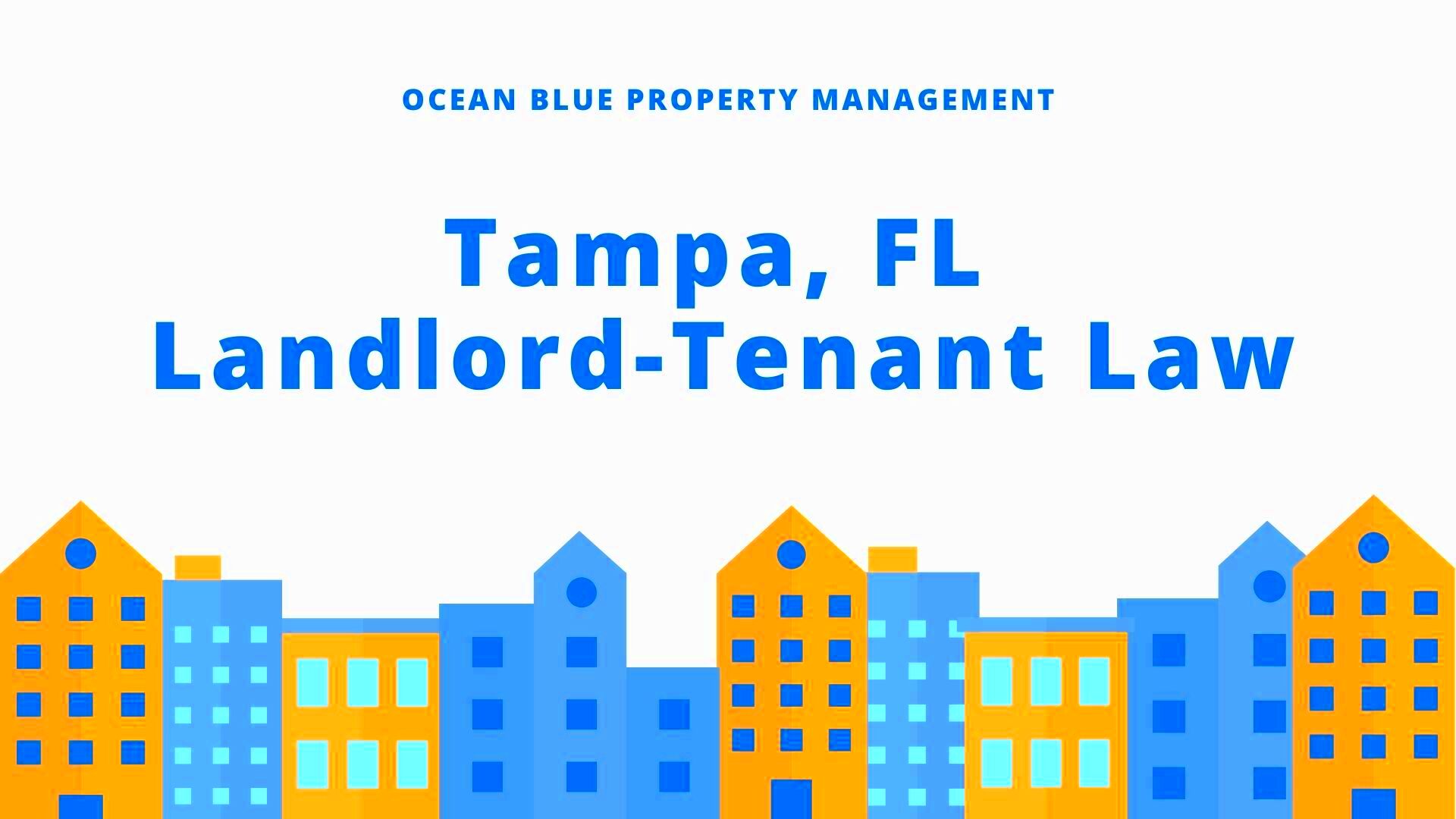
An agreement for lease is an important paper within the relationship that exists between landlords and tenants. In Florida, lease agreements can be either written or oral; however, it is best to use written ones so as to have clarity and legal safety.
Necessary constituents of a lease contract consist of:
- Rental Amount: Specifies the monthly rent and due date.
- Duration: Indicates the length of the lease, whether it’s month-to-month or a fixed term.
- Terms of Use: Outlines acceptable use of the property, including pet policies and maintenance responsibilities.
- Termination Conditions: Details how either party can terminate the lease.
Nevertheless, before the signing of the lease agreement, it is very important for both parties to read and comprehend it. This is vital for preventing confusion and making every step with rent more systematically according to plan.
Rights and Responsibilities of Landlords
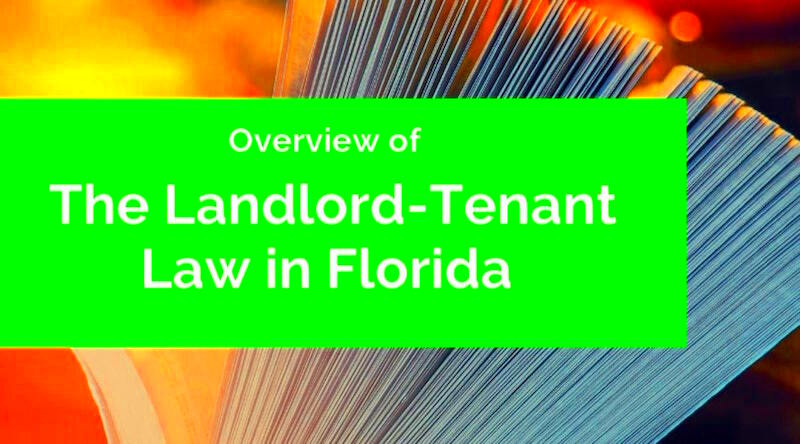
Florida law outlines specific rights and responsibilities of landlords. Knowing them will help you maintain good rental experiences and adhere to the legal standards.
Landlords Rights
- Right to Receive Rent: Landlords are entitled to receive the rent on time as agreed in the lease.
- Right to Entry: They have the right to enter the property for maintenance, repairs, or inspections, typically with prior notice.
- Right to Evict: If tenants fail to pay rent or violate lease terms, landlords can initiate eviction procedures.
Responsibilities of Landlords:
- Maintenance: Landlords must keep the property in a safe and habitable condition, addressing repairs promptly.
- Disclosure: They must disclose known issues, such as mold or lead paint, that could affect tenant safety.
- Return of Security Deposit: After a tenant moves out, landlords must return the security deposit within a specific timeframe, minus any lawful deductions.
Owning these rights and responsibilities, landlords can build a cordial relationship.
Rights and Responsibilities of Tenants
The essential rights and responsibilities of tenants determine the nature of their renting and sharing experience. Such knowledge can equip the tenants in asserting their rights whilst observing their duties.
Tenants’ Rights:
- Right to a Habitable Home: Tenants are entitled to live in a safe and well-maintained property.
- Right to Privacy: Landlords must provide reasonable notice before entering the rental unit.
- Right to Fair Treatment: Tenants should not face discrimination based on race, gender, or other protected characteristics.
Duties of Tenants:
- Paying Rent: Tenants must pay their rent on time as agreed in the lease.
- Reporting Repairs: They should promptly notify landlords about any needed repairs or maintenance issues.
- Following Lease Terms: Tenants must adhere to all terms outlined in the lease, including noise restrictions and pet policies.
Moving into a rental property can be a milestone in life, but it is important for tenants to understand their rights and responsibilities as this will help them enjoy hassle free stay.
Handling Security Deposits in Florida
Florida has made it a point to have security deposits as its main ticket out of trouble, but both landlords and tenants should know how to handle them well so that they do not end up regretting in future. In other words, any landlord can easily face such situations just like any other landlord can also fall victim of some tenants who will not pay their rents.
Main Pointers Regarding Security Deposits:
- Amount: In Florida, the maximum amount a landlord can charge for a security deposit is typically equivalent to one month’s rent for an unfurnished unit and up to two months’ rent for furnished units.
- Holding and Returning: Landlords must hold the deposit in a separate account and return it within 15 days of the tenant vacating, along with an itemized list of any deductions.
- Lawful Deductions: Landlords can deduct for damages beyond normal wear and tear, unpaid rent, or cleaning costs, but must provide a clear explanation of these deductions.
Significant Steps for Lessees:
- Documentation: Tenants should document the condition of the property when moving in and out, taking photos as evidence.
- Communication: If issues arise regarding the return of the deposit, tenants should communicate with the landlord promptly.
The landlords and tenants can evade disagreements and endorse an unbiased renting mechanism by comprehending the supervision of security deposits.
Eviction Process in Florida
Florida’s eviction procedure is complicated and stressful for both landlords and tenants. It is important to understand these steps so that this process can be done legally and fairly.
Green Light in Expulsion Steps:
- Notice to Tenant: The first step for landlords is to provide a written notice to the tenant. This could be a 3-Day Notice for non-payment of rent or a 7-Day Notice for lease violations.
- Filing an Eviction Lawsuit: If the tenant does not comply with the notice, the landlord can file an eviction lawsuit (also known as an Unlawful Detainer action) in the local county court.
- Hearing: After filing, a court date is set where both parties can present their case. It’s crucial for landlords to provide evidence, such as the lease agreement and payment records.
- Judgment: If the court rules in favor of the landlord, a judgment will be issued. The tenant may be ordered to vacate the property.
- Writ of Possession: If the tenant still refuses to leave, the landlord can request a Writ of Possession, allowing law enforcement to remove the tenant.
Double-checking at each stage is therefore vital for landlords, so as not to face legal consequences. By knowing these steps, tenants can understand their rights and if necessary, prepare themselves for a case in court.
Frequently Asked Questions about Landlord-Tenant Regulations
Laws relating to tenants and landlords can trigger numerous queries. Here are some typical questions that might help allay worries:
1. What is the legal notice period for eviction?
Notice period for evictions vary in Florida as it depends on the reason for eviction. In most cases, it is a 3-day notice for non-payment of rent and a 7-day notice for lease breaches.
2. Can a landlord enter the rental property without notice?
However emergencies will be exempted from this law since landlords are not allowed to enter houses without giving prior notification. For every ordinary day, such notification should be 24 hours.
3. What happens if a tenant does not pay rent?
The landlord has the right to give a 3-Day Notice to pay rent or leave. When a tenant fails to comply, eviction proceedings can be initiated by the landlord.
4. How can a tenant protect their security deposit?
When renters arrive and depart they must keep track of every thing related to the status of the unit and also maintain all correspondence about their security money.
For basic knowledge concerning the common worries in landlord-tenant relations, these FAQs serve as a guide. It is advisable to seek advice from a legal expert about particular problems at all times.
Conclusion on Florida Landlord-Tenant Regulations
Landlords can prevent conflicts and enhance landlord-tenant relationships if they are aware of the relevant laws. Additionally, it is important for tenants to be aware of their rights in order to receive fair treatment and to enable them to speak up when problems arise.
Ultimately, open communication and mutual respect between landlords and tenants are key to a successful rental experience. Seeking legal advice can provide clarity and prevent misunderstandings in times of uncertainty. Ensuring that you stay updated is the best method of maintaining an easy and simple rental process.
